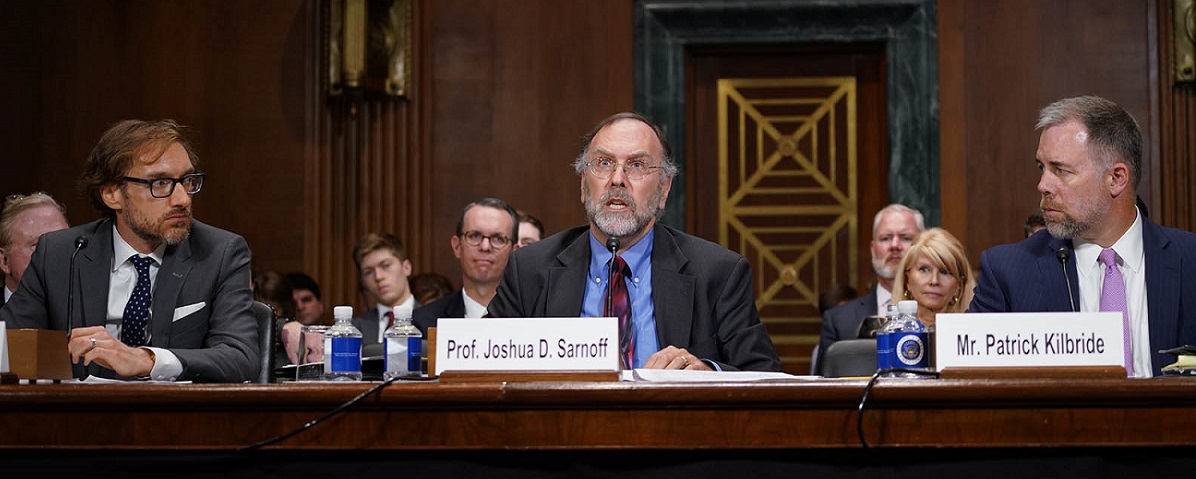The Center for Intellectual Property Law and Information Technology (CIPLIT®)'s distinguished faculty works in a broad range of intellectual property areas, including copyright, patent, innovation policy, trademark, art and cultural heritage law, cyberlaw, data protection and moral rights. Recent achievements include:
Professor Joshua Sarnoff testified before the US Senate on Tuesday, June 4, 2019, in regard to pending legislative efforts to change what can be patented. Video is available here.
Additionally, Professor Sarnoff published a response to “Is There Any Need to Resort to a §101 Exception for Prior Art Ideas?” on the Patently-O blog, responding to Jeremy Doerre’s article published at 2019 PATENT-O L.J. 10. The response explained why Mr. Doerre’s suggestions failed to address the need for early clarity provided by eligibility determinations under Section 101 and, more importantly, the important situations where Section 103 does not prevent the patenting of uncreative applications of novel but ineligible natural and abstract discoveries.
 Joshua D. Sarnoff, professor of law at DePaul University, testifies before the Senate Judiciary Committee in a hearing on patent eligibility in Washington, DC, on June 4, 2019. Photo: Jay Mallin
Joshua D. Sarnoff, professor of law at DePaul University, testifies before the Senate Judiciary Committee in a hearing on patent eligibility in Washington, DC, on June 4, 2019. Photo: Jay Mallin
Professor Patty Gerstenblith completed her Fulbright Specialist Project with a public lecture on Trafficking and Protection of Archaeological Heritage: Legal Mechanisms and Law Enforcement at Jordan's Department of Antiquities in Amman. She also had the fourth edition of her casebook - Art, Cultural Heritage and the Law – published and her article - Provenances Real, Fake and Questionable - accepted for print in International Journal of Cultural Property.
Professor Mike Grynberg participated in the Trademark Scholars Roundtable at Harvard Law School; this roundtable is an annual gathering of trademark scholars to discuss recent and long-term developments in trademark doctrine. Additionally, his article - AI and the "Death of Trademark" - will be published by the Kentucky Law Journal in 2020.
Professor Margit Livingston was featured in a Chicago Lawyer article about the DePaul College of Law's Center for Animal Law and discussed trademark and copyright issues related to animals at its 2019 spring seminar, Intellectual Property Law and the Legal Status of Animals.